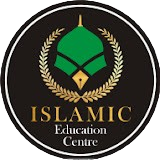
 Registered under Society Registration Act XXI of 1860 & Bombay Public Trust Act 1950
Registered under Society Registration Act XXI of 1860 & Bombay Public Trust Act 1950An ISO Certified Institute for Islamic studies

 Registered under Society Registration Act XXI of 1860 & Bombay Public Trust Act 1950
Registered under Society Registration Act XXI of 1860 & Bombay Public Trust Act 1950
Islam motivates its followers to always ponder, seek answers and do research work in life. In fact, the primary objective of Islamic research itself is to find the important truth about a matter and recommend solutions to the issue centered on Islamic laws and principles.
Research Methodology is an important part of The Islamic Education Centre and has been designed to impart education in the foundational methods and techniques of academic research in Islamic studies. The structured step-by-step process guides students through the journey of research, fostering critical inquiry and deepening their understanding of Islamic education.
1. Topic Selection
Students begin by selecting a relevant topic that aligns with their interests and the curriculum's objectives. Topics should be meaningful and contribute to the broader field of Islamic education. Faculty members provide guidance, encourage students to explore contemporary issues, historical contexts, or educational theories.
2. Guidance from Faculty
Once a topic is chosen, students consult with faculty mentors as a guide for further research. These discussions help refine the research question, ensuring clarity and focus. Respective guides recommend foundational texts and resources that will support the research.
3. Resource Collection
Students gather information from a variety of sources, including:
Books: Key texts in Islamic education and teachings provide foundational knowledge and context which mainly include Quran, Hadiths, and other Islamic books.
Digital Resources: Academic journals, articles, and authentic online databases offer current research and diverse perspectives.
Community Input: Engaging with scholars and guides can provide qualitative insights and real-world applications related to the topic.
4. Organizing Information
Students categorize the information into themes or key concepts, creating a logical framework for their research.
5. Clarification of Misconceptions
Students identify and clarify misconceptions surrounding their topic, ensuring accurate interpretations of Islamic teachings through engagement with scholars and reliable sources.
6. Writing the Research Book/ Dissertation
Students begin drafting their research book, which should include:
Acknowledgments: A section to express gratitude to those who supported and contributed to the research process, including mentors, guides, and scholars.
Introduction: Clearly define the topic, explain its significance, and outline the objectives of the research.
Meaning of the Topic: Provide a detailed explanation of the topic, including relevant definitions, historical context, and key concepts.
Methodology: Describe the methods used for research, including data collection and analysis.
Findings and Discussion: Present the main findings, analyse them, and discuss their implications in relation to existing literature.
Conclusion: Summarize the key points and suggest areas for future research.
References: Include a comprehensive list of all sources cited in the paper, following appropriate academic citation styles.
7. Review and Feedback
After drafting, students revise their research work based on feedback from peers and mentors, focusing on clarity, coherence, and adherence to citation standards.
8. Research Viva
A research viva is conducted, where students present their findings and defend their research. This process hones their presentation skills and deepens their understanding through critical questioning.
9. Final Submission
Upon completing revisions and the viva, students prepare their research book for final submission, ensuring adherence to formatting guidelines.
| Sr No. | Research Topic | Research Group |
|---|---|---|
| 1 | Triple Talaq & Halala |
Dr. Mishfa Patel Miss. Iqra Hussain |
| 2 | Taraweeh Aur Ikhtelaf | Miss. Madiha Memon |
| 3 | Sunnat-Al-Nikah |
Miss. Rabiya Shaikh Miss. Femin Shaikh |
| 4 | Tawheed, Shirk, Kufr & Munafiqat |
Miss. Yasmeen Shaikh Miss. Misbah Attar Miss. Sadiya Memon |
| 5 | At-Talaq Fil Islam (Talaq, Khula & Fasake Nikah) |
Miss. Faiza Shaikh Miss. Ruman Chandshawale |
| 6 | Roza |
Miss. Ayesha Patel Miss. Madiha Khan |
| 7 | Hajj Aur Uske Masail |
Miss. Muskan Shaikh Miss. Farzeena Shaikh |
| 8 | Bidat & Kufr |
Miss. Madiha Chandshawale Miss. Mehvish Shaikh |
| 9 | Al-Halal Wal-Haram Fil Islam |
Miss. Simran Mujawar Miss. Munira Shaikh |
The Research Committee at the Islamic Education Centre is dedicated to promote a culture of academic inquiry and awareness among students. By providing access to essential Islamic texts, including Hadith and other significant literature, the committee aims to empower students to deepen their understanding of Islamic principles and navigate the complexities of contemporary issues. The Research Committee at the Islamic Education Centre is committed to guiding students through their academic research journeys.
Objectives:
1. Research Guidance: Offer personalized mentorship and advice to students on research topics, methodologies, and best practices in Islamic studies.
2. Access to Resources: Curate and provide access to a wide range of essential materials, including books, articles, and digital resources relevant to research.
3. Workshops and Training: Organize workshops that equip students with research skills, including data collection, analysis, and academic writing.
4. Promoting Critical Thinking: Encourage students to engage critically with their sources and develop well-rounded perspectives on various Islamic issues.
5. Collaborative Environment: Foster a collaborative atmosphere where students can share insights, discuss ideas, and support each other in their research endeavour’s.
Through these initiatives, the Research Committee aims to empower students to conduct meaningful research, deepening their understanding of Islamic principles and contributing to the broader scholarly community.
| Sr No. | Name of the committee member | Designation in committee | Contact No. |
|---|---|---|---|
| 1 | Mufti Hasnain Mahfooz Noman | Observer | 8668871196 |
| 2 | Mohd. Tabish Rahmani | Director | 7620484670 |
| 3 | Ms. Amina Khan | Faculty | 9850013640 |
| 4 | Ms. Alfiya Sutar | Faculty | 7758053923 |
| 5 | Ms. Nikhat Sayyed | Faculty | 9529344911 |